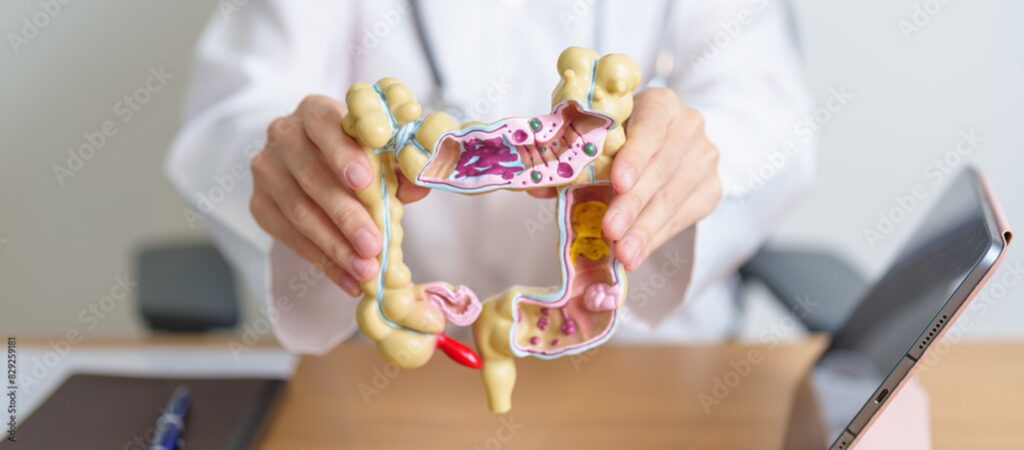What is Crohn’s disease?
Crohn’s disease is a chronic inflammatory disorder of the gastrointestinal (GI) tract that can cause various symptoms. While medications and lifestyle changes can manage symptoms, surgery often becomes necessary for many patients. here’s what you need to know about the surgical options available and when they might be necessary.
What are the Symptoms of Crohn’s Disease?
Crohn’s disease often starts in a person’s teens or twenties, but symptoms can show up even earlier. The most common symptoms include:
- Abdominal cramps
- Diarrhea
- Delayed growth in children, which may appear before any digestive issues
- Weight loss
- Fever
- Anemia (low red blood cell count)
The above mentioned symptoms can vary in severity and may come and go over time
Why Surgery for Crohn’s Disease?
Crohn’s disease can lead to complications like fistulas (abnormal connections between tissues), abscesses, or bowel obstructions. In cases where medication doesn’t sufficiently control symptoms or if complications arise, surgery may be required to remove damaged tissue or open up narrowed sections of the intestine.
What are the different types of Crohn’s Disease Surgeries?
Various surgical procedures are available to help manage Crohn’s disease, with each one customized to the patient’s unique condition and complications:
- Strictureplasty: This procedure widens narrowed parts of the intestine, improving bowel function without removing any sections of the bowel.
- Bowel Resection: The surgeon removes a diseased part of the intestine and reconnects the healthy sections. This can relieve pain and other symptoms caused by inflamed or blocked areas.
- Ostomy: If a large portion of the bowel is removed, an ostomy may be necessary. This creates an opening (stoma) on the abdomen, allowing waste to pass into a bag outside the body.
- Colectomy: This involves the removal of all or part of the colon. It’s often recommended when Crohn’s severely affects the large intestine.
- Proctocolectomy: This surgery removes both the colon and the rectum and is often paired with an ostomy.
What are the potential risks of surgery for Crohn’s disease?
Although, surgery can greatly improve the quality of life for Crohn’s patients, it isn’t without risks. Infection, bleeding, and complications from anaesthesia are possible. In addition, surgery doesn’t cure Crohn’s, and symptoms may eventually return. However, with modern surgical techniques and close monitoring, many patients experience long periods of remission after surgery.
How long is the recovery time after Crohn’s disease surgery?
Recovery time after Crohn’s surgery varies depending on the type of procedure and individual healing. Generally, most patients can expect to stay in the hospital for 3 to 7 days. Full recovery can take several weeks to a few months. Your doctor will provide guidance on resuming normal activities and monitor your healing process closely to prevent complications and promote recovery.
Surgery for Crohn’s disease is often needed when other treatments fail or complications occur. Consulting your doctor can help determine the best management plan for optimal outcomes.
